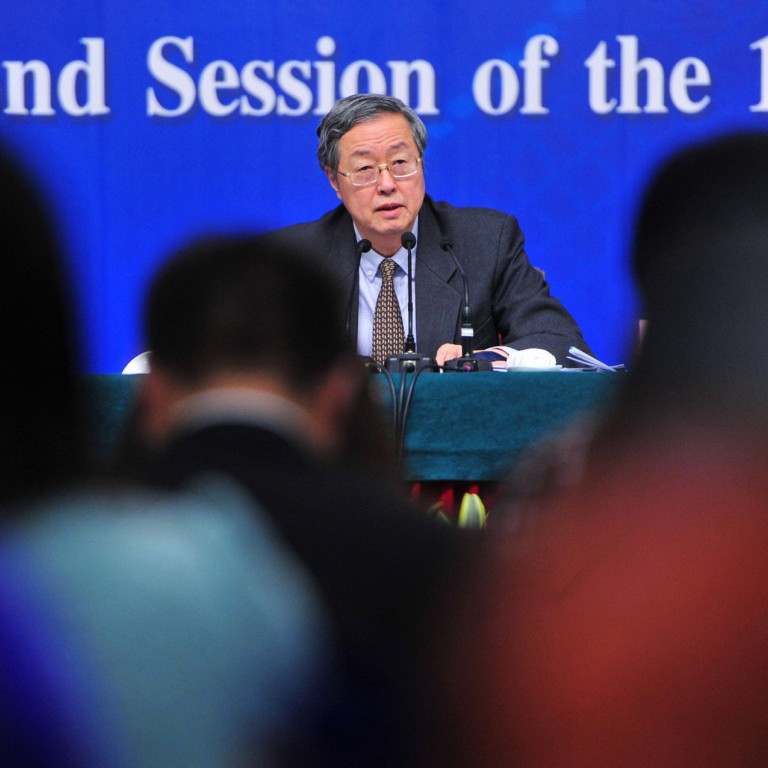
PBOC boss says deposit rate liberalisation to take up to two years
PBOC chief Zhou Xiaochuan says move is last step in reform of mainland interest rates
People's Bank of China governor Zhou Xiaochuan says the liberalisation of deposit rates will be the last step in the reform of the mainland's interest rate regime and is likely to be achieved over the next one to two years.
Speaking yesterday on the sidelines of the National People's Congress meeting in Beijing, Zhou cautioned that market interest rates might initially spike if deposit rates were fully relaxed, though the situation would improve later.
"Relaxing control over deposit rates is certainly on our agenda," he said. "I personally believe it can be achieved within one or two years."
The timetable given by Zhou was in line with market expectations as interest rate reform was one of the tasks the government outlined in its 12th five-year plan, for the period 2011 to 2015.
Granting banks complete flexibility in determining returns on savings deposits will introduce more competition and greater risk to the banking system.
Big state-owned banks have previously dominated loan pricing and have in past decades reaped huge profits from the gap between lending and deposit rates.
The PBOC has removed curbs on lending rates but still caps returns on deposits at 1.1 times its benchmark rate, which is 3 per cent for one-year deposits.
Opportunities might emerge during the course of interest rate liberalisation that "may bring relatively high returns in a short period of time for market players", Zhou said. That would push interest rates up but they would return to balanced levels thanks to intense competition, he said.
Citigroup economist Shen Minggao said higher interest rates might pose a challenge to Beijing's economic growth target. The government has set this year's gross domestic product growth target at about 7.5 per cent, unchanged from last year's level.
The world's second-largest economy saw its growth ease to 7.7 per cent last year, the slowest in over a decade, as overcapacity and a weak global economic recovery curbed demand.
Smaller companies have faced difficulties borrowing because banks favour large and state-owned borrowers.
"Higher capital costs would definitely hurt economic activity," Shen said.

